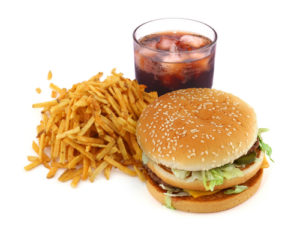 Ultra-processed foods are linked to many health harms, including heart disease and type 2 diabetes. A recent large study of women found that they are also linked to colon adenomas (polyps) - which are precursors to colorectal cancer. The more ultra-processed foods in the diet, the higher the risk of polyps (adenomas).
Ultra-processed foods are linked to many health harms, including heart disease and type 2 diabetes. A recent large study of women found that they are also linked to colon adenomas (polyps) - which are precursors to colorectal cancer. The more ultra-processed foods in the diet, the higher the risk of polyps (adenomas).
There was a 45% greater risk of polyps in the group eating the most ultra-processed foods (about 10 servings per day), when compared to those eating the fewest ultra-processed foods (about 3 servings per day).
The researchers point out that the rise in the rates of colorectal cancer has occurred with the rise of ultra-processed food consumption. Currently, more than 50% of the diet of Americans consists of ultra-processed foods.
Other researchers suggest that there may be other contributing factors to the rise in colorectal cancer, such as low fiber in the diet (typical Western diet), and microplastics in the environment, which are found in our food, water, and beverages.
Bottom line: Eat a diet rich in whole grains, fruits, vegetables, nuts, seeds, and legumes. This will increase the amount of fiber in your diet, and lower your intake of ultra-processed foods. Read ingredient labels and if there is something that normally is not found in a person's kitchen, then it is ultra-processed.
Examples of ingredients found in ultra-processed foods: emulsifiers, carrageenan, mono- and diglycerides, soy lecithin, polysorbate, cellulose, colors, titanium dioxide, high fructose corn syrup, hydrogenated oils, dextrose, whey protein, nitrates, artificial flavors, natural flavors, colors, etc.
From Medical Xpress: Ultra-processed foods tied to higher rates of early-onset colorectal cancer precursors in adults
Colorectal cancer used to be associated with old age, but diagnoses have become increasingly common in adults aged 50 or younger particularly in high-income countries like the United States. The reason for this trend is unclear, but a new study led by Mass General Brigham researchers, as part of the Cancer Grand Challenges PROSPECT team, suggests an important link to ultra-processed foods that merits closer investigation. ...continue reading "Ultra-Processed Foods and Colon Polyps"

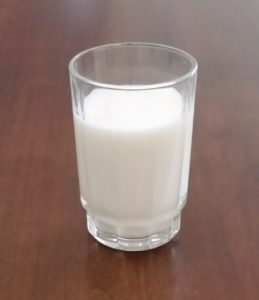 Many people (even health professionals) are still under the impression that dairy products made from milk are unhealthy. NOT TRUE. Consuming dairy products, especially whole milk products, is
Many people (even health professionals) are still under the impression that dairy products made from milk are unhealthy. NOT TRUE. Consuming dairy products, especially whole milk products, is
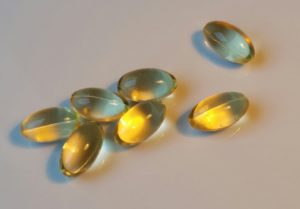 Recently, another well done study of vitamin D and cancer resulted in disappointing results. Vitamin D supplements showed no benefit in persons with metastatic colorectal cancer (CRC). It did not result in a difference in overall survival outcomes.
Recently, another well done study of vitamin D and cancer resulted in disappointing results. Vitamin D supplements showed no benefit in persons with metastatic colorectal cancer (CRC). It did not result in a difference in overall survival outcomes. Studies on aspirin keep coming. For decades, studies found that persons taking aspirin frequently have a lowered risk of developing colorectal (colon) cancer, and that they are less likely to die if they do develop colorectal cancer. A recent
Studies on aspirin keep coming. For decades, studies found that persons taking aspirin frequently have a lowered risk of developing colorectal (colon) cancer, and that they are less likely to die if they do develop colorectal cancer. A recent 
 Once again, bad news about ultra-processed foods. American adults eat so much ultra-processed food that it's now about 57% of their daily calories. It's because these foods are convenient, durable, available everywhere, taste good, and frequently are less expensive than whole foods.
Once again, bad news about ultra-processed foods. American adults eat so much ultra-processed food that it's now about 57% of their daily calories. It's because these foods are convenient, durable, available everywhere, taste good, and frequently are less expensive than whole foods.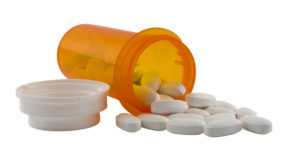 Antibiotics can be life-saving, but there are also unintended consequences. One of them is that they disrupt and alter the gut microbiome (the microbial community of the millions of microbes living in the intestines). A
Antibiotics can be life-saving, but there are also unintended consequences. One of them is that they disrupt and alter the gut microbiome (the microbial community of the millions of microbes living in the intestines). A 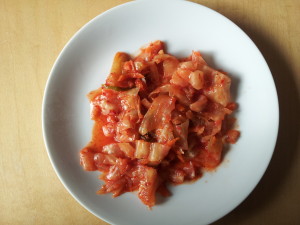 Fermented foods include: yogurt, buttermilk, sour cream, cheese, kefir, fermented vegetables, kimchi, natto, miso, sauerkraut, traditional pickles, traditional sourdough bread, apple cider vinegar, and kombucha. To quickly improve the gut microbiome, try to eat six 1/2 cup servings each day for a
Fermented foods include: yogurt, buttermilk, sour cream, cheese, kefir, fermented vegetables, kimchi, natto, miso, sauerkraut, traditional pickles, traditional sourdough bread, apple cider vinegar, and kombucha. To quickly improve the gut microbiome, try to eat six 1/2 cup servings each day for a  An interesting
An interesting 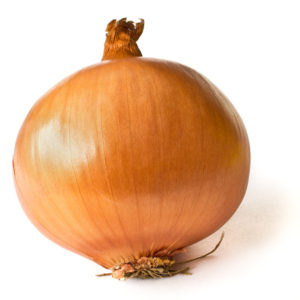 Is eating vegetables in the Allium family (garlic, onion, leeks, spring onions, garlic stalks) protective in regards to colon cancer? A recent
Is eating vegetables in the Allium family (garlic, onion, leeks, spring onions, garlic stalks) protective in regards to colon cancer? A recent